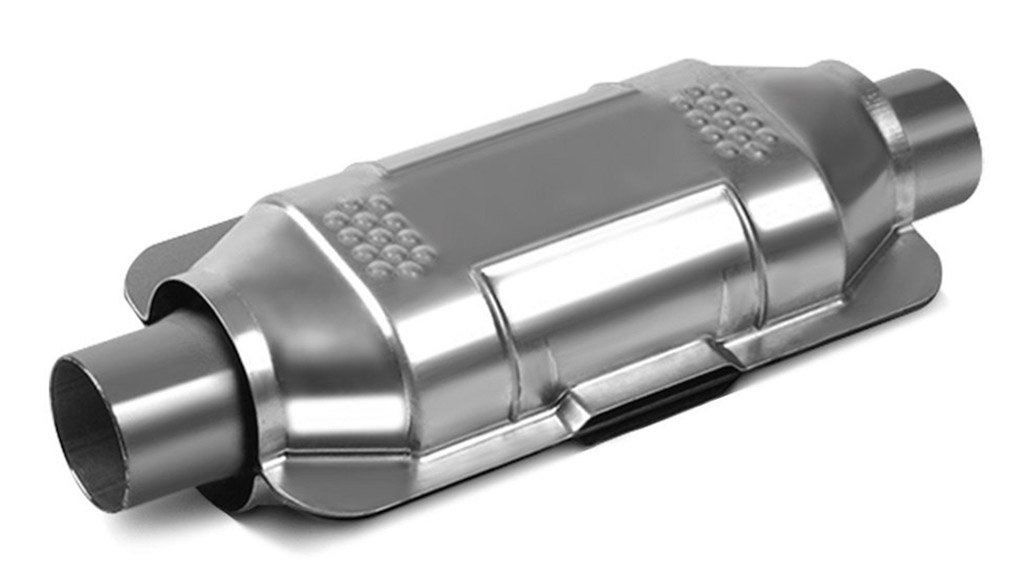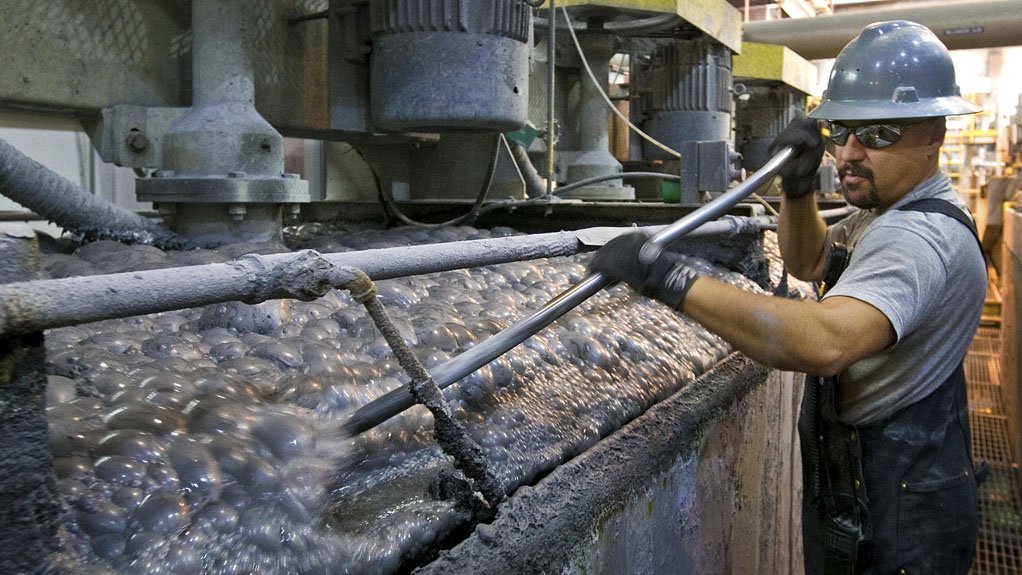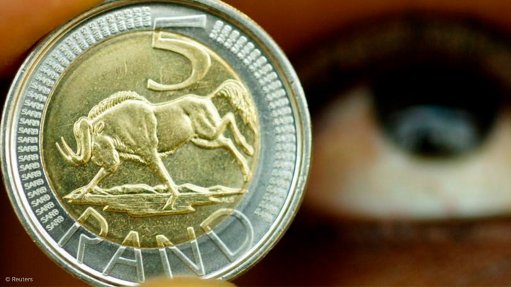Softening demand, unrelenting supply key causes of platinum price weakness



LOSING FAVOUR There has been a growing negative sentiment in Europe toward diesel vehicles, which use platinum intensive catalysts
TOUGH TIMES The South African platinum mining industry is ‘suffering’ as some mining companies, outside of South Africa, intend to expand their output
The weakness in platinum prices has been driven primarily by softening fabrication demand fundamentals and a lack of commensurate reductions in supply to offset those weaker demand fundamentals, states New York-based research and consulting firm CPM Group.
The company notes that one of the biggest sources of weakness has been the reduction in demand for platinum from the automotive sector, which is the largest end-user of platinum.
CPM points out that there has been growing negative sentiment in Europe toward diesel vehicles, which use platinum-intensive catalysts. “This sentiment has been in the works for several years. Recent emissions scandals, coupled with the option for alternative vehicle and emission control technologies, have added momentum to this negative sentiment.”
The firm comments that, outside Europe, which is the largest diesel passenger vehicle market worldwide, India has shown “some promise”; however, starting in late 2014, the removal of diesel subsidies quickly “killed” any hope for an ongoing increase in diesel engine market share.
CPM states that, contrary to market opinions, platinum use in auto catalysts has not declined from 2015 to 2017, but has been growing, albeit at rates of between 0.9% and 2% a year.
Further, the firm remarks that jewellery demand, the metal’s second-largest, has not made up for the decreased demand for platinum from the automotive market.
China is the largest consumer of platinum jewellery and a relative slowdown in economic growth in the country over the past few years, coupled with a crackdown on graft, weighed on platinum jewellery demand in China to some extent.
CPM elaborates that, as a consequence, platinum imports into China have declined significantly from a 2013 peak, while platinum trading volumes on the Shanghai Gold Exchange are running at about one-third of their 2013 levels.
The firm says that one factor that has been helping platinum fabrication demand over the past few years has been an increase in demand for commercial vehicles, which use platinum-intensive catalysts, owing to their diesel engines.
The increase in demand from this source has offset some of the weakness in demand from the passenger vehicle market as well as the jewellery market.
Further, CPM notes that demand from the US commercial vehicle market is showing signs of slowing, pointing out that, owing to the fact that it accounts for about 40% of the global market, such a slowdown points to further “pain” for platinum on the demand side in the coming years.
The firm comments that, while fabrication demand for platinum has been in decline, mine supply has not decreased sufficiently to offset the lack of growth in demand.
Additionally, while total platinum supply, including secondary recovery from scrap, softened in 2016 and is about 13% off its peak in 2006, the decline has not been sufficient.
CPM surmises that, perhaps, even more important to platinum prices is the weakness in fundamentals, which has made investors nervous about absorbing the ongoing market surpluses, further weighing on prices.
“There is a common misperception that the platinum market has been in a deficit for many years. “In fact, with the exception of the period between 2012 and 2014, the platinum market experienced large surpluses, of total supply relative to fabrication demand for most of the time since 2003.
“As savvy investors became aware of these surpluses, they emerged as sellers after 2011, and have been reluctant buyers since then.”
CPM highlights that, with all this “well known” in the platinum market, the weakness in platinum fundamentals seems to be, for the most part, already factored into the metal’s price. The firm sayss that, while there is potential for platinum prices to decline further, the downside for the metal currently seems limited.
The firm emphasises that the South African platinum mining industry is “suffering” and, moreover, a couple of mine closures have been offset by some mining companies expecting growth in output going forward, as well as expansion in output outside South Africa.
CPM remarks that the fate of platinum prices largely rests on the shape of the supply curve over the course of the next five to ten years. While secondary supply is forecast to continue declining, mine supply is not expected to decline sharply, or at least sharply enough over the next few years. Price-supporting reductions in supplies appear to lie further in the future.
Palladium prices, meanwhile, have been going from strength to strength over the past few years, the firm points out. Its says that, while the fabrication demand fundamentals for this metal have been more favourable than those for platinum, it would seem that these fundamentals are already priced in at about current levels.
CPM says that some of the recent gains in prices have been driven by chart-based buying, momentum trading and a tight physical market relative to investment demand. Moreover, the firm notes that conditions in the Nymex palladium futures market have also factored into higher prices this year.
“Platinum’s loss in the automotive market has been palladium’s gain. “That said, China and the US, which are two of the largest automotive markets worldwide and primary users of palladium-intensive catalysts, have been experiencing some softness in demand.”
Further, the firm elaborates that, unlike in the case of platinum, palladium secondary supply is on the rise and palladium mine supply is, to a large extent, a by-product of platinum, particularly from South Africa.
CPM explains that this means that, if platinum mine supply is not shrinking in any meaningful way, neither will palladium mine supply. It says that the prices of these metals quite often run ahead of their fundamentals and that could be the case with palladium.
Article Enquiry
Email Article
Save Article
Feedback
To advertise email advertising@creamermedia.co.za or click here
Announcements
What's On
Subscribe to improve your user experience...
Option 1 (equivalent of R125 a month):
Receive a weekly copy of Creamer Media's Engineering News & Mining Weekly magazine
(print copy for those in South Africa and e-magazine for those outside of South Africa)
Receive daily email newsletters
Access to full search results
Access archive of magazine back copies
Access to Projects in Progress
Access to ONE Research Report of your choice in PDF format
Option 2 (equivalent of R375 a month):
All benefits from Option 1
PLUS
Access to Creamer Media's Research Channel Africa for ALL Research Reports, in PDF format, on various industrial and mining sectors
including Electricity; Water; Energy Transition; Hydrogen; Roads, Rail and Ports; Coal; Gold; Platinum; Battery Metals; etc.
Already a subscriber?
Forgotten your password?
Receive weekly copy of Creamer Media's Engineering News & Mining Weekly magazine (print copy for those in South Africa and e-magazine for those outside of South Africa)
➕
Recieve daily email newsletters
➕
Access to full search results
➕
Access archive of magazine back copies
➕
Access to Projects in Progress
➕
Access to ONE Research Report of your choice in PDF format
RESEARCH CHANNEL AFRICA
R4500 (equivalent of R375 a month)
SUBSCRIBEAll benefits from Option 1
➕
Access to Creamer Media's Research Channel Africa for ALL Research Reports on various industrial and mining sectors, in PDF format, including on:
Electricity
➕
Water
➕
Energy Transition
➕
Hydrogen
➕
Roads, Rail and Ports
➕
Coal
➕
Gold
➕
Platinum
➕
Battery Metals
➕
etc.
Receive all benefits from Option 1 or Option 2 delivered to numerous people at your company
➕
Multiple User names and Passwords for simultaneous log-ins
➕
Intranet integration access to all in your organisation



















